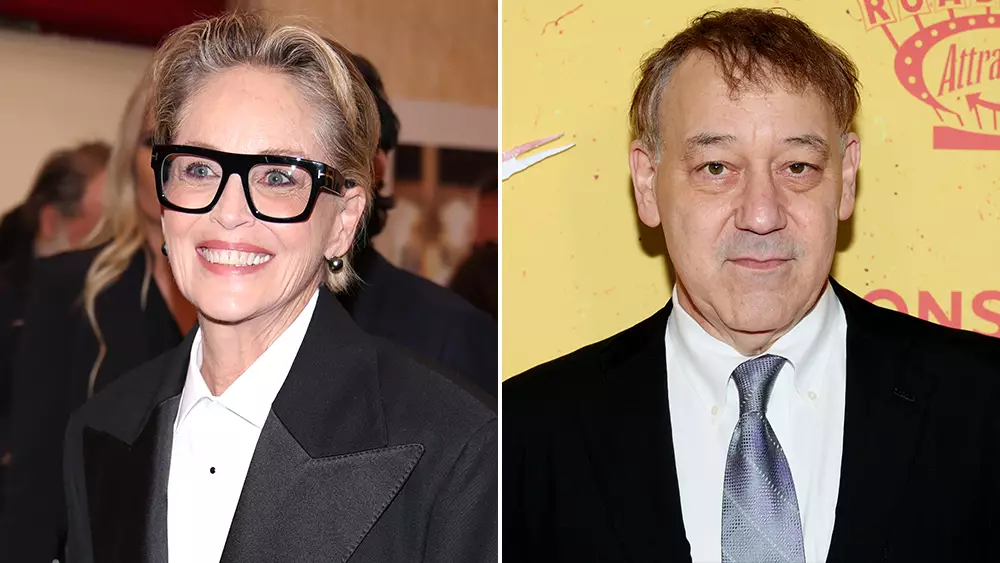In a revealing Q&A session at the renowned Torino Film Festival, actress Sharon Stone delved into her experiences while working on the 1995 revisionist Western film *The Quick and the Dead*. Recognized for her groundbreaking performances, Stone took this opportunity not only to discuss her cinematic journey but also to voice her feelings about the industry and her collaborations with director Sam Raimi. Drawing comparisons with her relationship with Martin Scorsese, Stone’s reflections shed light on deeper issues of loyalty and recognition that artists often grapple with in the filmmaking realm.
Stone’s insights regarding her collaboration with Raimi are particularly striking. She lauded him for his cinematic talent and ability to transition from cult classics like *The Evil Dead* to mainstream success with franchises like *Spider-Man*. However, the actress emphasized a noticeable disconnect in their professional relationship. While praising Raimi’s work, she lamented his lack of loyalty, a sentiment that starkly contrasted with her ongoing rapport with Scorsese. In Stone’s view, loyalty is not just a personal characteristic but a professional imperative, particularly in an industry where relationships can dictate one’s career trajectory.
The contrast is particularly telling. Stone implied that while Raimi evolved into a celebrated figure, his disconnection from past collaborators reflects a broader pattern in Hollywood, where artistic relationships can often be fleeting. Scorsese, who is known for maintaining long-term relationships with his collaborators, cultivates an environment where trust and loyalty thrive. Stone’s comments highlight how meaningful connections can both sustain and enrich a career.
The Cult Status of *The Quick and the Dead*
Despite its initial commercial failure, *The Quick and the Dead* has garnered a dedicated following over the years, evolving into what many classify as a cult classic. The film features a compelling narrative centered around a gunslinging woman, played by Stone, seeking vengeance for her father’s death at the hands of a corrupt mayor portrayed by Gene Hackman. The film’s resurgence in popularity speaks to how audience perceptions can change over time, often disconnected from critics’ evaluations at the moment of release.
This oscillation between commercial success and cultural significance warrants contemplation. As Stone reflected on her role as both actor and producer, she acknowledged her involvement in bringing notable talent to the film, such as Russell Crowe and Leonardo DiCaprio, both before they attained fame. This acknowledgment further underscores the notion that Stone played a pivotal, albeit underappreciated, role in the film’s legacy.
Addressing her decision to halt her directorial pursuits, Stone candidly discussed the pervasive sexism within Hollywood during the 1990s and 2000s. She voiced her frustrations about being met with systemic resistance when trying to helm directorial projects, despite her success in producing *The Quick and the Dead*. This commentary opens up an important dialogue surrounding the barriers female directors face in an industry still dominated by male gatekeepers.
Stone’s assertion that her ambitions were stunted due to entrenched sexism evokes a larger narrative about gender inequality in Hollywood. Her experience illustrates the hurdles women encounter while vying for creative control, often relegated to roles as casting directors or producers rather than being afforded the opportunity to direct. The industry’s reluctance to embrace female directors not only impedes individual careers but also deprives audiences of diverse storytelling perspectives.
Sharon Stone’s recollections of her experiences with *The Quick and the Dead* and her reflections on collaboration, loyalty, and sexism in Hollywood paint a nuanced picture of the film industry. Her insights serve as a poignant reminder of the complexities behind the glitz of filmmaking, revealing the often-unspoken dynamics that shape artists’ careers. As she continues to navigate her multifaceted career, Stone’s voice resonates not only as a reminder of the past but also as a call for greater recognition of loyalty and inclusivity in the industry moving forward.



Leave a Reply